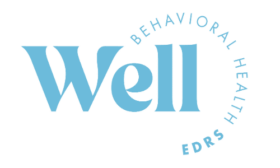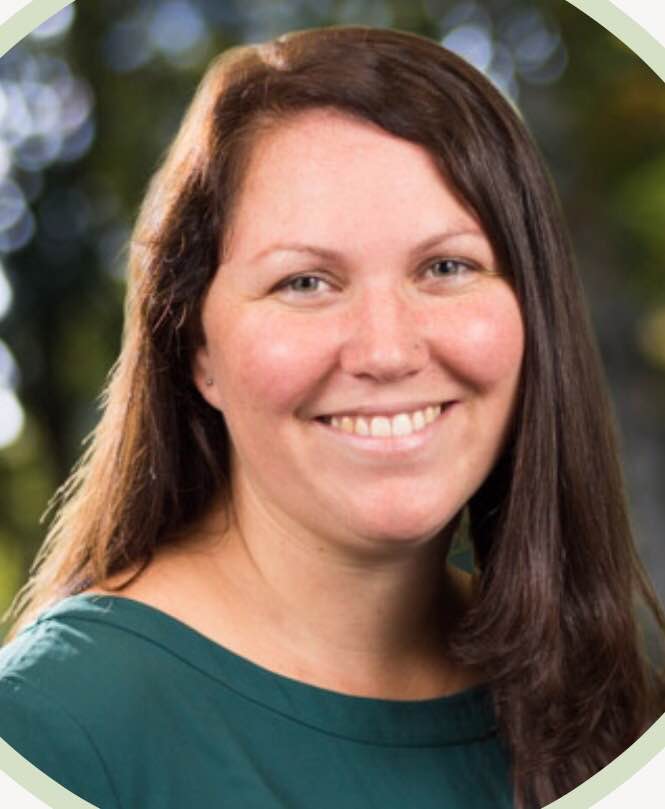Prior to becoming a psychotherapist and recovery coach at Eating Disorder Recovery Specialists (EDRS), Whitney McMullan was treated for an eating disorder herself. She never imagined she would eventually enter the field of eating disorder treatment as a provider, but now cherishes the benefits—for both herself and her clients—of her first-hand understanding where she can share the realities of eating disorder recovery.
Eating disorders were once considered chronic issues. That is now changing, and Whitney is helping to shift the paradigm by modeling the possibility of full recovery for her clients. They find it “grounding and reassuring to know that their therapist has been through the struggle and has overcome it. Full recovery does exist. It’s something that you can truly achieve.”
Whitney’s evolution from eating disorder to full recovery—and then to becoming an eating disorder treatment specialist—took time.
Her first career teaching elementary school in New York City sparked her fascination with children’s social-emotional development. This led her to pursue a graduate degree in social work at Columbia University, where she focused on trauma and the treatment of PTSD. During her schooling, she worked at a college counseling center where she continuously encountered students grappling with both trauma and eating disorders. Whitney was struck by this phenomenon, and disheartened by how few eating disorder therapists specialized in trauma. She felt called to devote her professional life to remedying this lack.
After obtaining her LCSW, Whitney took a position as primary therapist at Monte Nido Manhattan, an eating disorder treatment program with day and evening tracks. She led individual, family, and group therapy for several years there, and recently left to open a private practice primarily with individuals pursuing eating disorder recovery. When EDRS launched, Whitney became one of the first meal coaches there. Now, she wears many hats in the organization: in addition to client coaching, she also manages a caseload of clients who receive various EDRS services and supervises their coaches.
In each role, Whitney’s personal experience recovering from an eating disorder influences the support she offers others: “Going through recovery and being in treatment opened my mind up to appreciating that people are so much more than their diagnosis or their struggles. I try to find the special thing that makes each client unique, and help them find the healthiest part of themselves. Because no matter how sick a person is with their eating disorder or any other mental illness, there is a healthy side to them. They’re just having trouble finding it. I see that as a huge part of my job, helping the client build that healthy self.”
In her own recovery, Whitney learned how to work with her emotions. She finds that “knowing what works for me is really helpful in connecting with clients.” Although she does not disclose everything about her history to clients, she will tell them she has had an eating disorder in the past, which “can break down walls, so the client feels like I really understand what the client is going through.”
But coaches who are in recovery themselves must be careful in treading the line between constructive and unconstructive relating. Whitney will clarify to clients: “‘I don’t understand exactly what you’re going through, because what you’re going through is individual and different than what I went through or what anyone else with an eating disorder is going through. However, I can remember how that feeling felt for me.’”
Whitney’s experiences in recovery allow her to provide clients not just a sense of hope, but also a realistic picture of the bumps in the process: “I think people have this idea that when you’re fully recovered, life is all sunshine and rainbows, and nothing is ever difficult. But one of the biggest gifts I give to my clients is to say, ‘You’re still going to struggle with sadness or happiness or anger or whatever comes up. However, you’re not going to need to use your eating disorder to deal with it. You’re going to have other tools that are much healthier.’”
Often, when clients stop their eating disorder behaviors, they feel disheartened because they don’t feel immediately better—and sometimes even feel worse. Familiar with this frustration herself, Whitney empathizes, and then reminds them, “Recovering means you will be like every other person with difficult thoughts and emotions. You just won’t use food to deal with them.”
As a coach and clinician, Whitney practices offering “truth without judgment” while simultaneously challenging a client’s eating disorder and nurturing that client’s healthy self. She finds it is “a delicate balance, because sometimes the healthy and unhealthy selves overlap so much. A truthful picture of what’s going on might be hard to hear, but it also helps them recognize what’s going well for them, so that they have a balanced view of where they’re at and what they still need to do.”
Every day, Whitney marvels at the advantages coaching offers individuals who are pursuing recovery: “Often my clients have the skills, but they don’t have the self-assurance that it’s actually going to work. I’ve seen coaching work really well with clients, and I know I would have benefited from it myself. When I returned from treatment, I could have used a coach to offer me reassurance.”
Whitney is committed to preparing her clients for the realities of recovery, and does so by telling them, “It’s going to be really hard, and it’s possible.” It’s crucial for people to have access to this realistic perspective when they are navigating the murkiness of early recovery, because it cultivates trust. And trust—in oneself, and one’s providers—is necessary to make the decision to fully let go of an eating disorder. Because she demonstrates authenticity, Whitney’s clients find her trustworthy: “My clients trust me when I’m honest and straightforward with them because they know I’m not just (giving them) a storybook ending. Because that’s not an authentic picture of how life and humans are.”
If you or someone you know might be struggling with an eating disorder, contact EDRS. We are here to assist in your journey to recovery.



